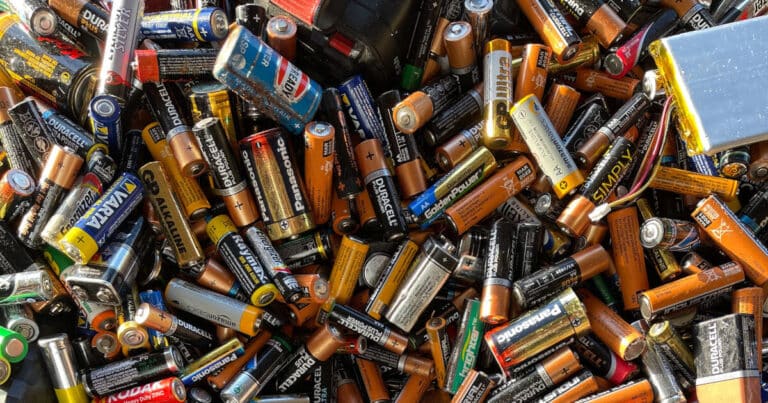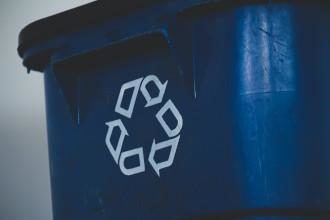The Improper Disposal of Batteries
By Harry Cooper – Batteries contain numerous harmful chemicals, and when improperly disposed of, these chemicals can enter our planet’s water and air. As many of these chemicals are carcinogenic or harmful in some way, improper disposal of old batteries can be harmful to plant, animal, and human life everywhere.
Fortunately, used batteries can be recycled or taken into stores to be disposed of in a safe way. By properly disposing of batteries we can help reduce the amount of harmful chemicals that end up in our environment.
Batteries may seem like a small household item found in electronic devices from children’s toys to TV remotes. However, because there are so many different battery types, used in so many different items, from smoke detectors to mobility scooters, batteries often contain a slew of often toxic chemicals.
When these old batteries are thrown out they often wind up in landfills. Once in these landfills the hazardous waste inside the batteries leaks into the soil and water, which then ends up not only harming wildlife, but also our own health.
The Effects of Single Use Batteries
Single use batteries, or alkaline batteries, are batteries that can only be used once, and they often contain incredibly harmful chemicals. However there are a few certain chemicals found in batteries that make for a particularly potent hazardous waste when the batteries start corroding.
Firstly, single use batteries contain a number of carcinogenic substances such as nickel and cadmium. Coming into contact with these metals can lead to increased cancer rates.
Another harmful substance found in dead batteries is sulfuric acid. This substance is highly corrosive and helps break down batteries when they’re in the landfill. This substance can also cause blindness and internal organ damage when humans come into direct contact.
Single use batteries also contain heavy metals such as lead. Lead is a harmful heavy metal that can become airborne and cause air pollution that cause development issues as well as damage to the heart, brain, and kidneys.
With batteries being incredibly dangerous to human health and the environment, it may be hard to know how to dispose of batteries. An easy way to properly dispose of batteries is through battery recycling.
However, some people promote other batteries, such as rechargeable batteries, as an alternative to single use batteries. While these batteries last longer, even rechargeable batteries have their environmental downsides.
Rechargeable Lithium Ion Batteries
The first rechargeable lithium ion battery became available for commercial use in 1991. Since then they have been used to power everything from mobile phones to electric cars. While they were meant to bring about the next age of efficient batteries, they have proven to have some serious pitfalls.
Lithium single use batteries exist in a non-rechargeable form. However the rechargeable form of lithium ion batteries were meant to be a groundbreaking achievement, as it would answer the problem of not knowing how to dispose of batteries by not disposing of batteries at all.
However, lithium ion batteries can still be spent and require being disposed of. This becomes an issue as lithium batteries still contain many harmful chemicals, and create hazardous waste when disposed of improperly.
Harmful Effects of Lithium Ion Batteries
These carcinogenic chemicals found in a lithium battery can include nickel cadmium and lead acid. These chemicals become can be a very alarming issue when disposed of, as they can contaminate the surrounding environment.
Not only do these batteries become an issue during disposal, they can also leak into the environment during the raw materials mining process. This means that even if someone knows how to dispose of batteries containing lithium, they still can cause issues for human health and the environment.
Lithium ion rechargeable batteries have been know to overheat and combust and are a fire hazard. Many companies have started recalling and stopping production of certain products to help prevent fires.
On top of these issues with the battery, the technology to recycle rechargeable batteries is not all there yet. Since battery recyclers have a harder time recycling a rechargeable battery it makes it harder to keep up with the demand for lithium ion batteries, and thus they continue to create problems for the environment.
Recycling Batteries
While batteries contain chemicals with a high risk of causing health problems, batteries are an important part of powering the devices we use every day. And so phasing them out completely would be harder without a good alternative.
With batteries being so important it is also important to recycle batteries. Battery recycling is one of the best ways to properly dispose of batteries, and stop harmful chemicals such as nickel metal hydride from getting into the environment.
How to Recycle Batteries
Since batteries contain waste that is so volatile, they must be recycled separately from regular recyclables. Luckily there are tons of programs and recycling facilities dedicated to helping people start recycling their batteries.
Some programs are simple, such as taking your old car batteries to your local automotive store or mailing in your old phone to its manufactures for proper recycling. There are also a number of online resources to help people find where they can recycle their batteries such as Call2Recycle, which helps people find over thousands of battery recycling facilities across the US.
Religion and Battery Disposal
Interstate Batteries is a billion dollar company whose mission on their website is “to glorify God as we supply our customers worldwide with top quality, value-priced batteries, related electrical power-source products, and distribution services.” They describe how their religious values manifest in how they treat their employees and customers, but they can also be seen in their emphasis on recycling batteries. According to an article on AfterMarketNews, Interstate Batteries has recycled over 3 billion pounds of lead batteries.
According to Tod Lyons, their sustainability program manager: “Effectively, the battery manufacturing, distribution and recycling industry is a circular economy… It’s a closed loop using the same material, the same element on the periodic table, over and over for more than 70 years. We… will continue to do our part to make our industry and the planet greener.” Interstate Batteries is a great example of how a company dedicated to “glorify[ing] God” can do just that, by protecting God’s beautiful planet.
* Featured image source







